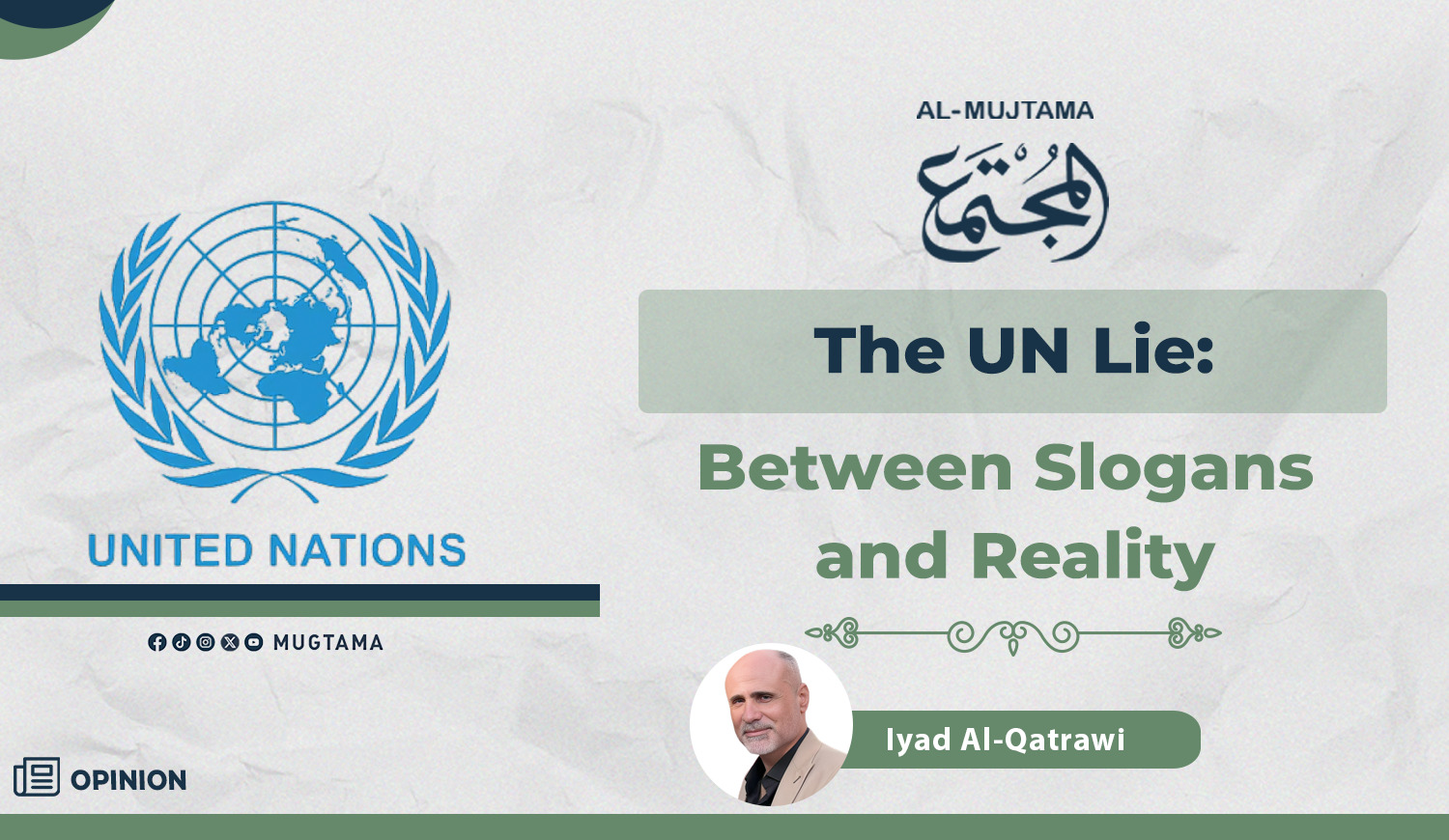The UN's Impotence
The UN Lie: Between Slogans and Reality

The United Nations is presented to the world as the paramount global institution defending peace, security, human rights, and sustainable development. Its emblem carries the hopes of nations, and its documents are full of lofty principles that promise a more just world!
However, the reality, across decades of experience, reveals a
deep chasm between rhetoric and practice. This has led many to describe it as
the "great lie," hiding behind a cloak of humanitarianism while
serving only the interests of the powerful.
The Security Council: Justice for the Victors
American political thinker Noam Chomsky says, "The real
failure of the Security Council lies in its being a tool in the hands of the
powerful few, not a global conscience as it is supposed to be."
The UN Security Council is the clearest example of a lack of
justice within the organization. The veto power, held by only five countries
(America, Russia, China, Britain, and France), strips the principle of equality
among nations of its meaning.
How many times have resolutions to save peoples from
occupation or oppression been aborted because the American veto stood against
them, as in the Palestinian issue or the Zionist invasion of Lebanon and the
Gaza Strip? Is this justice, or the imposition of the will of the powerful?
Double Standards
Former UN Secretary-General Kofi Annan said:
"International law is sometimes used as a weapon, not as a balance of
justice!"
When it comes to countries allied with major powers, the UN
turns a blind eye to violations. In contrast, the organization's mechanisms,
such as sanctions or investigations, are used against countries that deviate
from the Western line. We see this clearly in the handling of wars in Iraq,
Syria, and Yemen, or even the aggression against Gaza. Those who possess power
write the laws, and those who don't are prosecuted for violating them.
Failure to Prevent Genocides
The commander of UN forces in Rwanda, Romeo Dallaire, said:
"The United Nations did not lack information... it lacked will."
Despite early warning and disaster prevention mechanisms, the
UN failed in Rwanda (1994), where over 800,000 people were killed within weeks.
It also stood helpless before the massacres in Bosnia and Herzegovina, the
tragedy in Myanmar, the civil war in Sudan, and most recently, the Zionist
genocide in Gaza. In many cases, the organization knew what was happening but
chose silence or issued weak statements.
Human Rights Slogans: A Selective Tool
Former Human Rights Watch Executive Director Kenneth Roth
says, "The international human rights system has become conditional on the
desires of the great powers, not on the values of justice."
The UN adopts resounding rhetoric about human rights, but it
ignores the issues of forgotten peoples. Why don't we hear its voice when
opponents are suppressed in countries allied with the West? Why are peoples
under occupation absent from active discussions? It seems that rights are
granted according to a map of interests, not according to human dignity.
Manufacturing Incapacity: Resolutions Without
Implementation
Palestinian-American thinker Edward Said said: "The
United Nations is good at issuing resolutions, but it lacks the courage to
implement them if they conflict with the interests of the powerful."
The UN has issued hundreds of resolutions concerning
Palestine, but none with real impact have been implemented. For example,
Resolutions 242 and 338 regarding the Zionist withdrawal from the occupied
Palestinian territories, or the resolution on the right of return for
Palestinian refugees, all remained "ink on paper". What is the value of
resolutions if they are not applied?
Reform or Dismantling?
Former UN Secretary-General Ban Ki-moon said: "If the
United Nations is unable to reform itself, it may lose all legitimacy in the
eyes of the world's peoples."
Is the United Nations a lie? Perhaps not in the literal sense,
but it is certainly a major disappointment. Undoubtedly, there are dedicated
staff and institutions within the organization, but the overall system is
subject to the dominance of major powers. What is needed is not to embellish
the discourse, but radical reform that restores the institution's true
role as a guardian of justice, not as a political tool with humanitarian masks.










